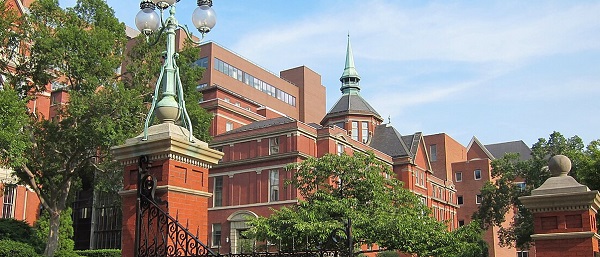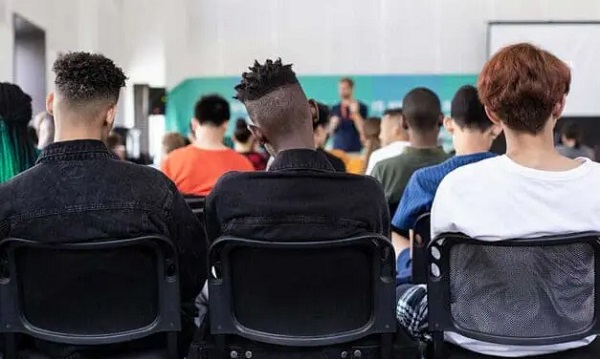Education
Focus in fall should be on getting kids up to speed after covid – Red Deer Public School will not pilot K-6 curriculum

Red Deer Public will not pilot K-6 curriculum
Priority will be on recovery and supporting students
Alberta Education’s release of the DRAFT Kindergarten to Grade 6 curriculum has received significant concerns from a range of stakeholders raising issues with the proposed programs of study.
The new curriculum is over 500 pages long with many of the pages containing outcomes and objectives that are sound, providing the knowledge, skills and perspectives that students need. Some of the pages however, have raised issues, some of them significant, particularly on segments of the Social Studies curriculum. We concur with many of those concerns.
Sharing the issues and concerns of many in our community, as well as across the province, The Board of Trustees voted unanimously to not participate in piloting the new curriculum at their April 14, 2021 meeting.
While the development of a new curriculum framework has been over a decade in the making, we need to ensure we take the time needed to get this right. Ultimately, the curriculum belongs to all Albertans and it should reflect the hopes and aspirations we have for our students who are the future of this province. What will students need in an ever changing world…curriculum fills those needs. The content and way many of us learned in the past is not what today’s students will need to be prepared for the future. Every student needs to be equipped with the knowledge, skills and attitudes that will enable them to create their future.
Our focus will be on recovery… Given the significant challenges we anticipate with what we hope will be a return to school under ‘near normal conditions’ in September, Red Deer Public’s focus for the 2021/22 school year will be on recovery, as it will be with school divisions across the province. We know there will be learning gaps for many students and our priority needs to be addressing those and getting students back on track. We are also mindful of the social and emotional challenges many students and families have faced during the pandemic, so we need to prioritize mental wellness as well. With competing priorities, including curriculum implementation, we need to focus on our most important work and make the best choice for students. Recovery is our most pressing need and it will be Red Deer Public’s priority for next year.
With that in place, seeing both strengths and weaknesses in the draft curriculum, Red Deer Public wants to provide constructive and meaningful input to make the new curriculum better without officially piloting the new curriculum.
Our teachers will play a key role…Work will still take place with our teachers from Kindergarten to Grade 6, as well as division and school leadership, to inform our decisions and provide constructive feedback. That work will take time and will be done through a detailed and authentic look at the curriculum’s content as well as how teachers will be able to deliver the outcomes. That process will not involve Red Deer Public students.
Given province-wide concerns with the new curriculum, we encourage Alberta Education to be flexible in piloting the new curriculum and request that they welcome and listen to feedback beyond pilot jurisdictions in order to improve the curriculum. Where we can provide input on elements of the program, Red Deer Public is ready to make meaningful contributions.
During the 2021/22 school year we will still need to engage our teachers in preparing for a new curriculum for when it is officially implemented. We will do this through detailed analysis of the content, professional development and collaboration to be well prepared for whatever direction the new curriculum takes so we can do our best for students.
We must also remember that this is only half of the new curriculum, work is also underway developing curriculum for Grades 7 to 12. To begin with, we need to ensure the K to 6 curriculum is sound as it lays the foundation for future grades. Alberta Education needs to take lessons learned from the current process to ensure that middle and high school curriculum is the best it can be and reflects the expectations of Albertans.
Whether it is this or past governments, politics seems to influence the process. Albertans must have confidence in the curriculum development process. We feel it would be beneficial for this to be an independent process that engages the best minds and takes a broad perspective on what critical skills and knowledge all students will need to succeed. This in turn will allow Alberta to be the best it can be for years to come. There has to be a way for curriculum to be developed around sound and shared principles.
In the meantime, the Government of Alberta is seeking input on the draft curriculum, and we urge our parents and community to take the time to review and understand the curriculum first and then share their perspectives. Teachers will be providing input from the classroom perspective, however, all perspectives are vital as part of the curriculum review process.
This new curriculum is important as it will impact teaching and learning for years to come. It needs to set students up for success, so now is the opportunity to make sure we get it right for all of our students.
Nicole Buchanan, Board Chair
Chad Erickson, Superintendent of Schools
Education
Johns Hopkins University Announces Free Tuition For Most Students


From the Daily Caller News Foundation
Johns Hopkins University (JHU) announced on Thursday it is making tuition free for families earning less than $200,000 and will waive both tuition and living expenses for those making less than $100,000.
The university stated that “a majority of American families” will qualify for the fee exemption, allowing most students to attend without contributing a single dollar. The decision is meant to help recruit “the best and brightest students to Johns Hopkins irrespective of their financial wherewithal.”
“Trying to understand financial aid offers can be overwhelming,” David Phillips, vice provost for admissions and financial aid at JHU, said in the announcement. “A big goal here is to simplify the process. We especially want to reach students and families from disadvantaged backgrounds, rural locations, and small towns across America who may not know that a Hopkins degree is within reach.”
Dear Readers:
As a nonprofit, we are dependent on the generosity of our readers.
Please consider making a small donation of any amount here.
Thank you!
In 2018, Michael Bloomberg donated nearly $2 billion to the university, the largest ever single gift to a U.S. university. JHU said it used this money “to become permanently need blind and no-loan in financial aid.”
The university also receives the most federal funding of any university, raking in more than $3 billion from the government in fiscal year 2023 for research and development alone. This is more than double what the next highest recipient of federal funding that year, the University of Washington, received.
Despite this, JHU in June complained that federal funding cuts forced it to institute a hiring freeze and pause annual pay increases for employees. In its message to the community at the time, the university also mentioned its disagreement with “recent efforts to limit or withhold visas from the international students and scholars.”
Some universities admit mass numbers of foreign students in order to pad their pockets, as such students often pay full tuition and fee costs without financial assistance.
Education
Why classroom size isn’t the issue teacher unions think it is

This article supplied by Troy Media.
The real challenge is managing classrooms with wide-ranging student needs, from special education to language barriers
Teachers’ unions have long pushed for smaller class sizes, but the real challenge in schools isn’t how many students are in the room—it’s how complex those classrooms have become. A class with a high proportion of special needs students, a wide range of academic levels or several students learning English as a second language can be far more difficult to teach than a larger class
where students are functioning at a similar level.
Earlier this year, for example, the Elementary Teachers’ Federation of Ontario announced that smaller class sizes would be its top bargaining priority in this fall’s negotiations.
It’s not hard to see why unions want smaller classes. Teaching fewer students is generally easier than teaching more students, which reduces the workload of teachers. In addition, smaller classes require hiring more teachers, and this amounts to a significant financial gain for teachers’ unions. Each teacher pays union dues as part of membership.
However, there are good reasons to question the emphasis on class size. To begin with, reducing class size is prohibitively expensive. Teacher salaries make up the largest percentage of education spending, and hiring more teachers will significantly increase the amount of money spent on salaries.
Now, this money could be well spent if it led to a dramatic increase in student learning. But it likely wouldn’t. That’s because while research shows that smaller class sizes have a moderately beneficial impact on the academic performance of early years students, there is little evidence of a similar benefit for older students. Plus, to get a significant academic benefit, class sizes need to be reduced to 17 students or fewer, and this is simply not financially feasible.
In addition, not only does reducing class sizes mean spending more money on teacher compensation (including salaries, pensions and benefits), but it also leads to a decline in average teacher experience and qualifications, particularly during teacher shortages.
As a case in point, when the state of California implemented a K-3 class-size reduction program in 1996, inexperienced or uncertified teachers were hired to fill many of the new teaching positions. In the end, California spent a large amount of money for little measurable improvement in academic performance. Ontario, or any other province, would risk repeating California’s costly experience.
Besides, anyone with a reasonable amount of teaching experience knows that classroom complexity is a much more important issue than class size. Smaller classes with a high percentage of special needs students are considerably more difficult to teach than larger classes where students all function at a similar academic level.
The good news is that some teachers’ unions have shifted their focus from class size to classroom complexity. For example, during the recent labour dispute between the Saskatchewan Teachers’ Federation (STF) and the Saskatchewan government, the STF demanded that a classroom complexity article be included in the provincial collective agreement. After the dispute went to binding arbitration, the arbitrator agreed with the STF’s request.
Consequently, Saskatchewan’s new collective agreement states, among other things, that schools with 150 or more students will receive an additional full-time teacher who can be used to provide extra support to students with complex needs. This means that an extra 500 teachers will be hired across Saskatchewan.
While this is obviously a significant expenditure, it is considerably more affordable than arbitrarily reducing class sizes across the province. By making classroom complexity its primary focus, the STF has taken an important first step because the issue of classroom complexity isn’t going away.
Obviously, Saskatchewan’s new collective agreement is far from a panacea, because there is no guarantee that principals will make the most efficient use of these additional teachers.
Nevertheless, there are potential benefits that could come from this new collective agreement. By getting classroom complexity into the collective agreement, the STF has ensured that this issue will be on the table for the next round of bargaining. This could lead to policy changes that go beyond hiring a few additional teachers.
Specifically, it might be time to re-examine the wholesale adoption of placing most students, including those with special needs, in regular classrooms, since this policy is largely driving the increase in diverse student needs. While every child has the right to an education, there’s no need for this education to look the same for everyone. Although most students benefit from being part of regular academic classes, some students would learn better in a different setting that takes their individual needs into consideration.
Teachers across Canada should be grateful that the STF has taken a step in the right direction by moving beyond the simplistic demand for smaller class sizes by focusing instead on the more important issue of diverse student needs.
Michael Zwaagstra is a senior fellow with the Frontier Centre for Public Policy.
Troy Media empowers Canadian community news outlets by providing independent, insightful analysis and commentary. Our mission is to support local media in helping Canadians stay informed and engaged by delivering reliable content that strengthens community connections and deepens understanding across the country
-

 Energy2 days ago
Energy2 days agoCarney bets on LNG, Alberta doubles down on oil
-

 Alberta2 days ago
Alberta2 days agoAlberta on right path to better health care
-

 Indigenous2 days ago
Indigenous2 days agoTop constitutional lawyer slams Indigenous land ruling as threat to Canadian property rights
-

 Alberta2 days ago
Alberta2 days agoCarney government’s anti-oil sentiment no longer in doubt
-

 Alberta2 days ago
Alberta2 days agoAlberta Emergency Alert test – Wednesday at 1:55 PM
-

 Alberta1 day ago
Alberta1 day ago‘Weird and wonderful’ wells are boosting oil production in Alberta and Saskatchewan
-

 Health2 days ago
Health2 days agoSPARC Kindness Tree: A Growing Tradition in Capstone
-

 Business1 day ago
Business1 day agoCanada is failing dismally at our climate goals. We’re also ruining our economy.







